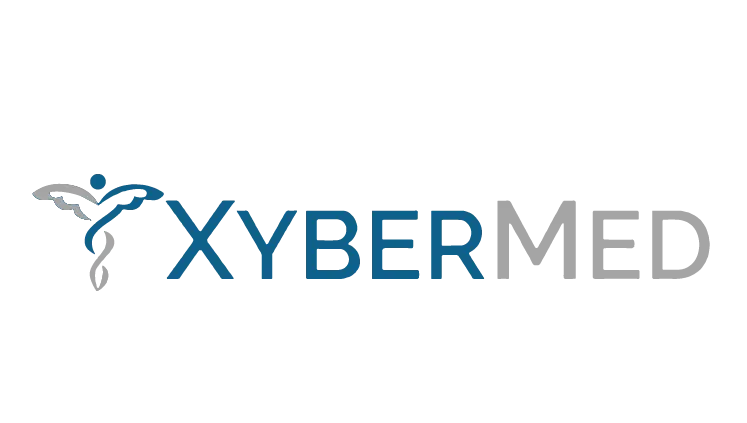Our Blog

Basic Purpose of Prior Authorization in Medical Billing
In medical billing, authorization is the term for this procedure. For example, you could be qualified for prior authorization of medical treatments if you already have a medical problem. This implies that before starting any medical operations or treatments, the sanitarium or croaker may receive approval from a payer or health insurance organization. Typically, a similar approval process is used to remittances.
Importance of Prior Authorization
In medical billing, authorization is the term for this procedure. For example, you could be qualified for prior authorization of medical treatments if you already have a medical problem. This implies that before starting any medical operations or treatments, the sanitarium or croaker may receive approval from a payer or health insurance organization. Typically, a similar approval process is used to remittances.
It guarantees prompt payment of required amounts as well as proper invoicing and collection procedures. In the absence of prior authorization, case payments might not be made and collections might not happen on schedule. To maximize payment, it is therefore necessary to enforce the prior authorization.
Challenges Related to the Goal of Prior Authorization
Prior Authorization is contingent upon a precise assessment, appropriate medical coding protocols, and verification of the necessary steps completed in advance of the surgery. In general, this is a laborious procedure, and a medical biller's role is crucial to it.
However, there are still a number of issues with the earlier permission procedure. The requirement for further translucency and its time-consuming nature is one of the primary issues. This implies that cases have to remain for a long time before starting therapy or until funds are authorized.
Earlier For many healthcare practitioners, getting authorization may be a hassle since they have to seek patients for permission to do particular operations. Furthermore, the healthcare professional must wait for payer approval before beginning therapy, increasing the likelihood that the patient would refuse it. In some circumstances, the payer may need to be informed by the croaker before any therapy is administered.
When a medical emergency happens, such as a weekend accident or a late-night sickness, prior authorization is not required. Under these conditions, the healthcare professional should request and get the necessary authorizations by incontinently communicating with the insurance.
Impact of Specific Treatment on Prior Authorization
If a particular therapy modifies the clinical trajectory of the patient, it may affect the prior authorization. Additionally, if a therapy is new and not already authorized by the payer, it may have an influence on prior authorization. This is a result of the payers' lengthy assessment of the necessity for prior authorization.
Medical practitioners must decide whether to bill patients or bear the expense out of pocket when they are unable to obtain the necessary authorization from payers or insurance companies. Because of this, any procedures that the case's health plan does not cover are noted in detail and acknowledged throughout the authorization process.
Nevertheless, clients are still liable for any benefits or services they receive that aren't paid for by their insurance plan. When insurance claims are denied because the provider was unable to obtain permission, they incur a loss of profit that affects the whole business cycle and forces them to bear the entire expense out of pocket.
As a solution to this issue, many private practices have begun contracting with medical billing firms to handle their prior authorization and verification on an efficient basis for front office assistance. Similar businesses are in charge of verifying prior authorization so that medical practitioners can speak with medical billing firms directly about the insurance details of their cases.
The following guidelines for medical billing prior authorization services are meant to ensure a faultless process:
Ensure that there are no surprises and that all services and freight are clearly mentioned.
Provide a method of payment and the case's phone number so that they may be contacted with any billing inquiries.
Keeping thorough records of all required data, attestation, and verification with the payer.
Provide a clear procedure for appealing claims that are rejected.
Provide a simple means of accessing and recovering data related to the prior authorization procedure.
Easily and quickly communicate with the payer about the case's prior authorization status.
Provide employees with adequate training on all crucial procedures.
Final Thoughts
The earlier authorization's purpose in the medical billing procedure has become less and less important as healthcare becomes more assiduously provided. However, prior authorization still needs a lot of labor and close attention to detail, and each provider has to use the most sophisticated technology available to improve the procedure as a whole.
When establishing a prior authorization program, there are several factors to take into account, but the most crucial one is making sure your billing team can handle the demand for this service. A program should be implemented starting at the association's highest level. It is important to ensure that a committed individual is consistently tasked with overseeing the process, at the very least. To fulfill the program's aspirations, this individual will be the final decision maker and must collaborate closely with the medical platoon.
FAQs:
Q1. What does previous authorization serve to accomplish?
Ans: An earlier authorization is a cost-control measure used by health plans that mandates doctors and other healthcare providers obtain prior approval from a health plan prior to providing a specific service to a patient in order for that therapy to be reimbursed.
Q2. What happens if you still need prior authorization?
Ans: Nevertheless, if you are subject to a previous-authorization requirement, commonly referred to as a pre-authorization demand, you must get approval from your health plan prior to accessing the necessary medical treatment or medication. Your health plan must grant you authorization before they can pay for the operation.
Q3. Can patients complete their prior authorization?
Ans: Although some plans allow individuals to submit their prior authorizations, this process is usually started by the croaker's office. Generally speaking, your croaker will be able to determine whether this new step is likely required for the therapy you are seeking.
Q4. How much time does it take to get prior authorization?
Ans: On your behalf, utmost network providers will file an authorization request. Nevertheless, it's wise to double check whether a certain procedure or service is covered by speaking with your Croaker or consulting a Personal Health Guide. Prior permission typically takes seven to fourteen business days.
Q5. What triggers a prior authorization?
Ans: The prior authorization process begins when a patient's health insurer does not pay for a treatment that the case coordinator orders. Prior authorization needs to be managed by correspondence between the insurance provider and the croaker's office.

Outsource medical billing service to XyberMed. Boost your practice with affordable, expert billing! Get started today and see the results.
Address:
755 Waverly Ave, Suite 100A Holtsville, NY 11742-1125 USA
